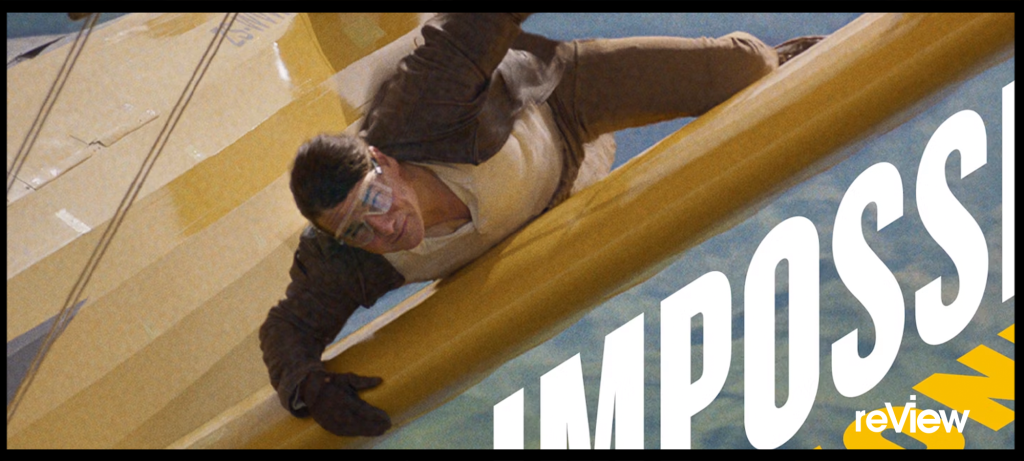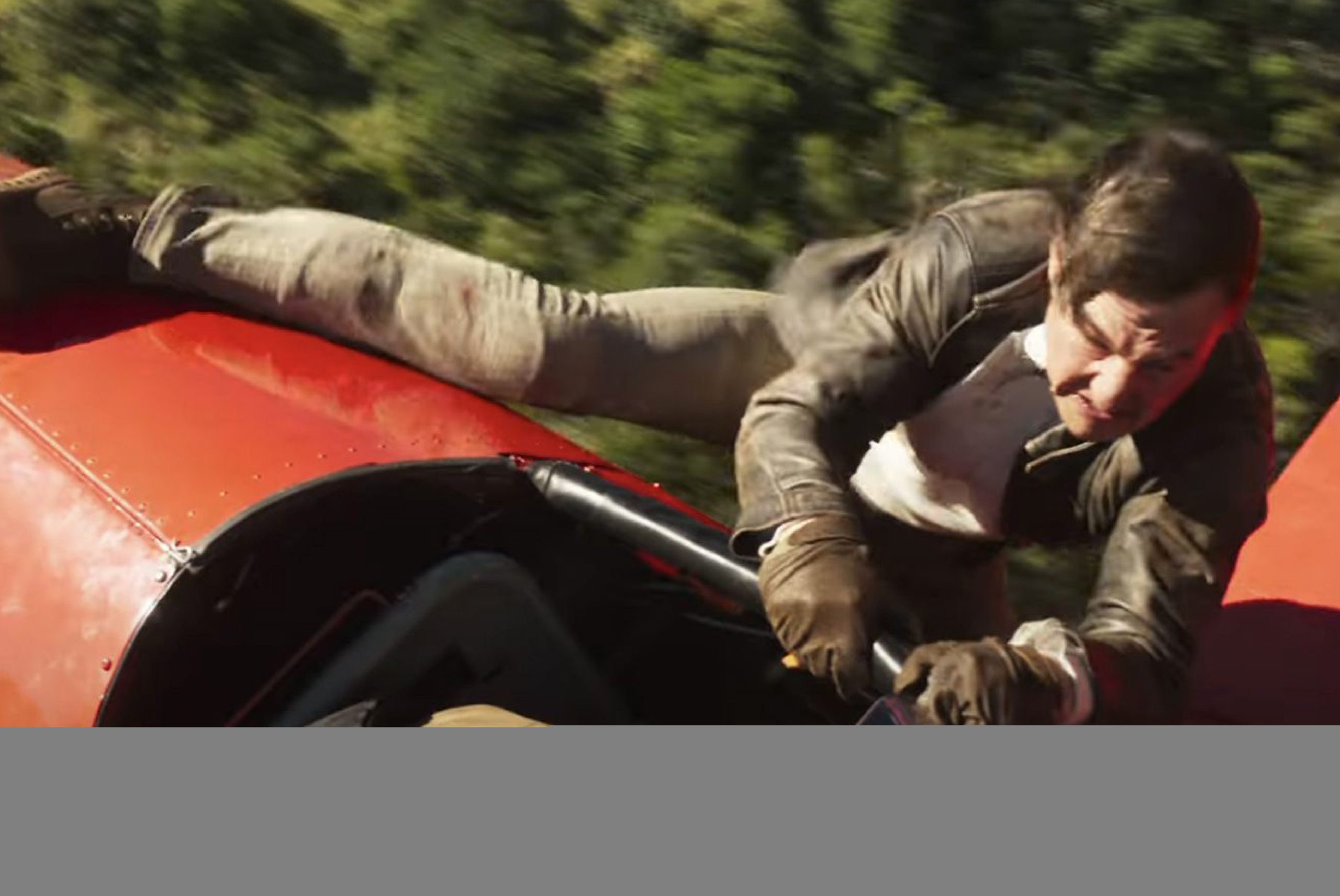
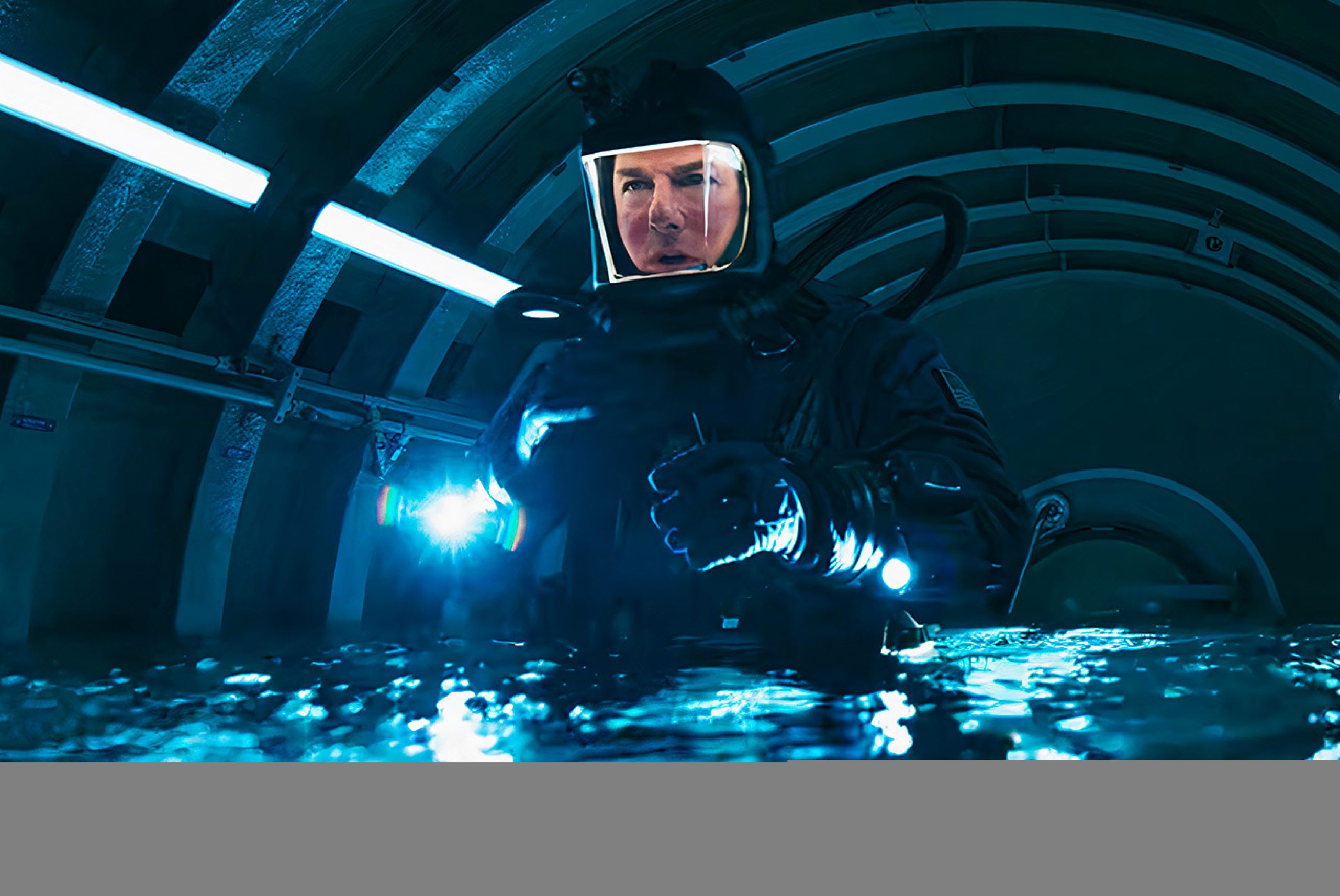
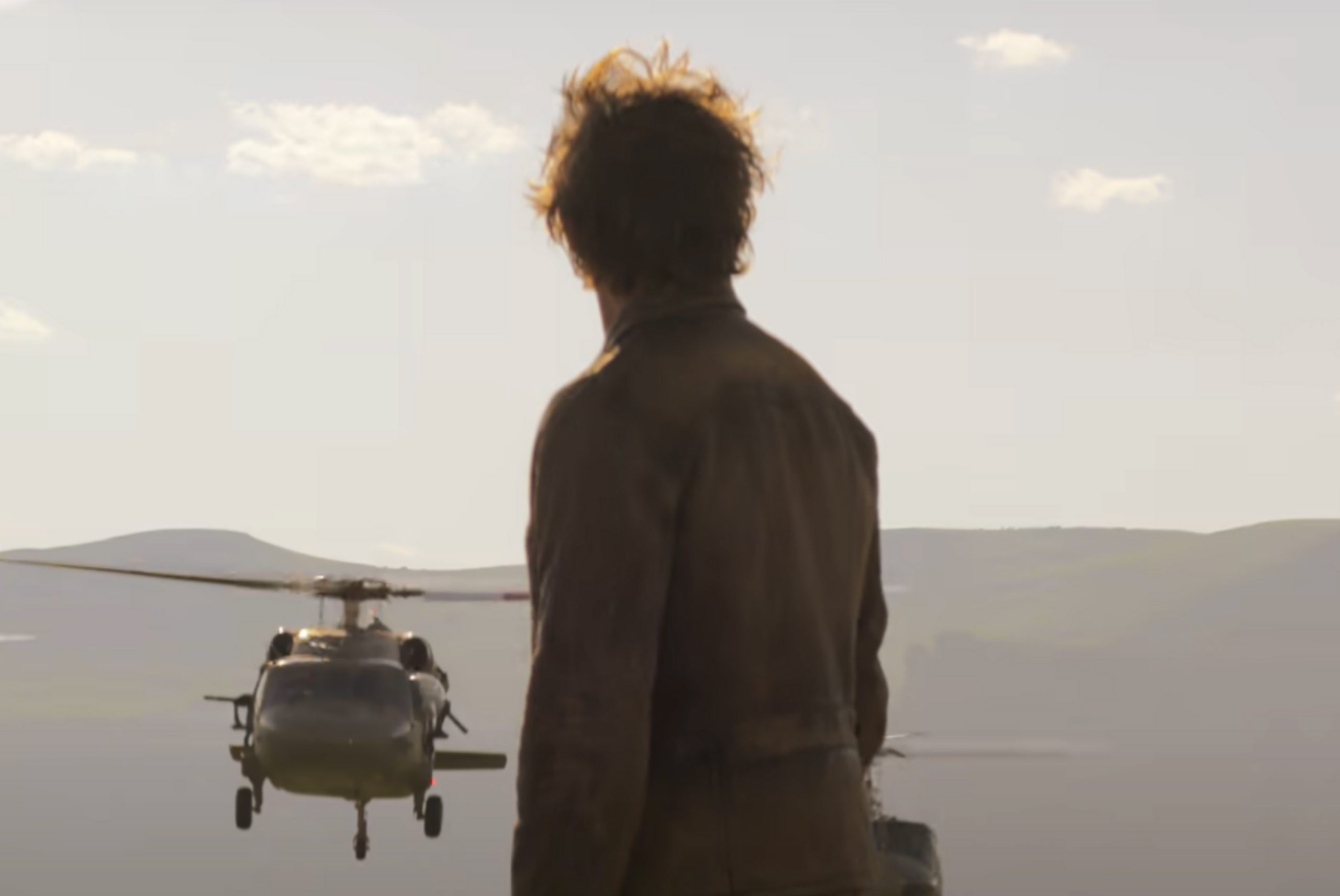
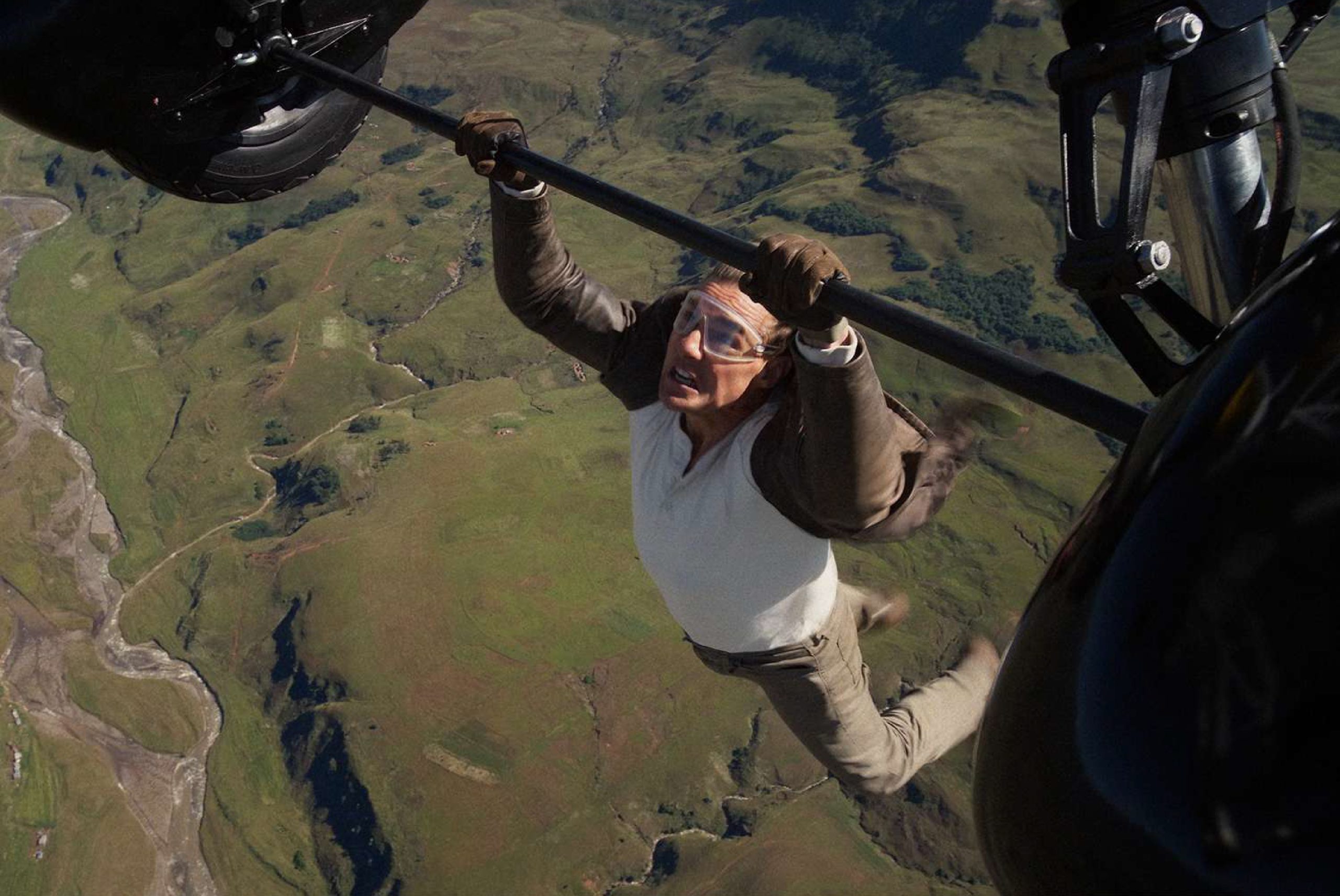
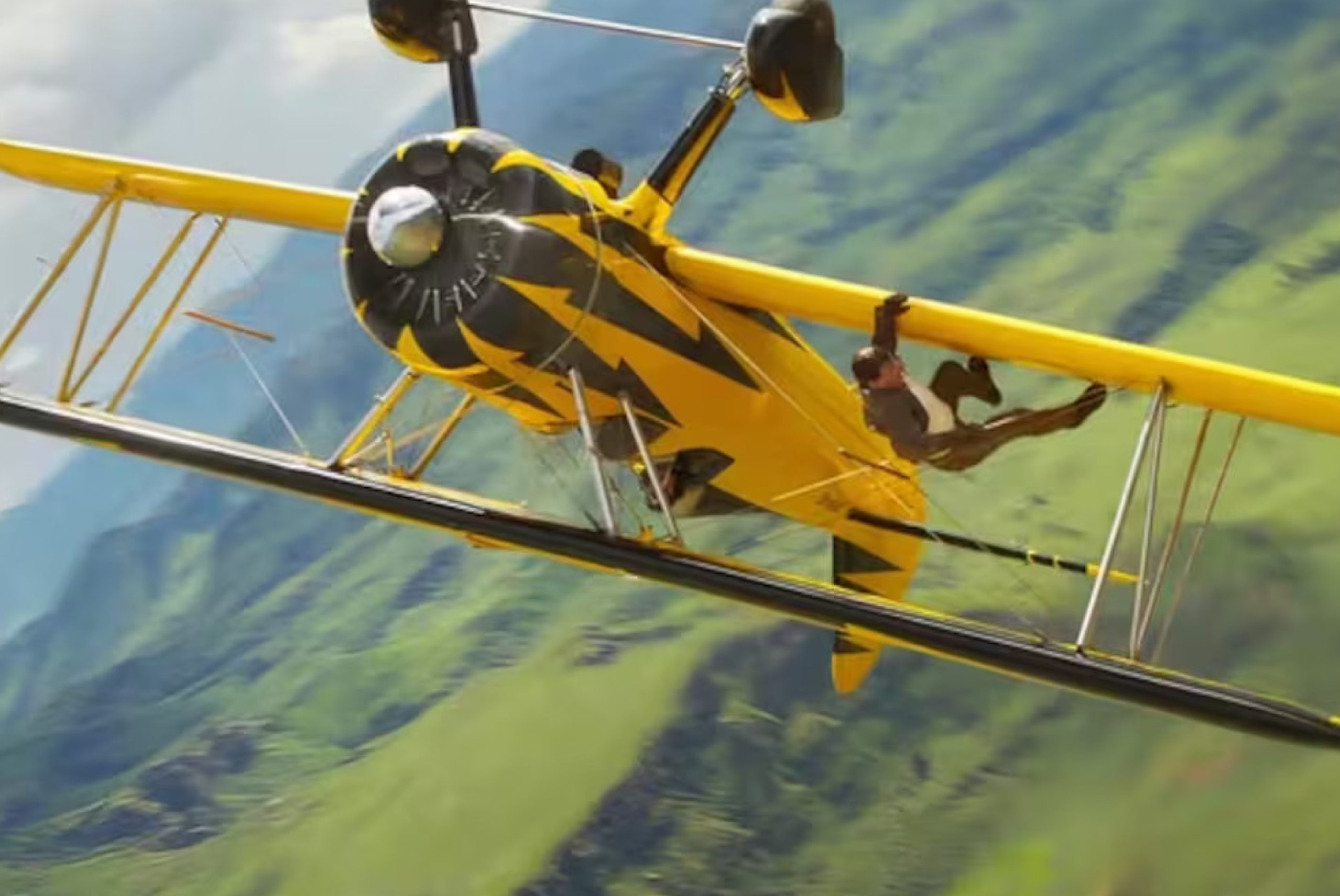
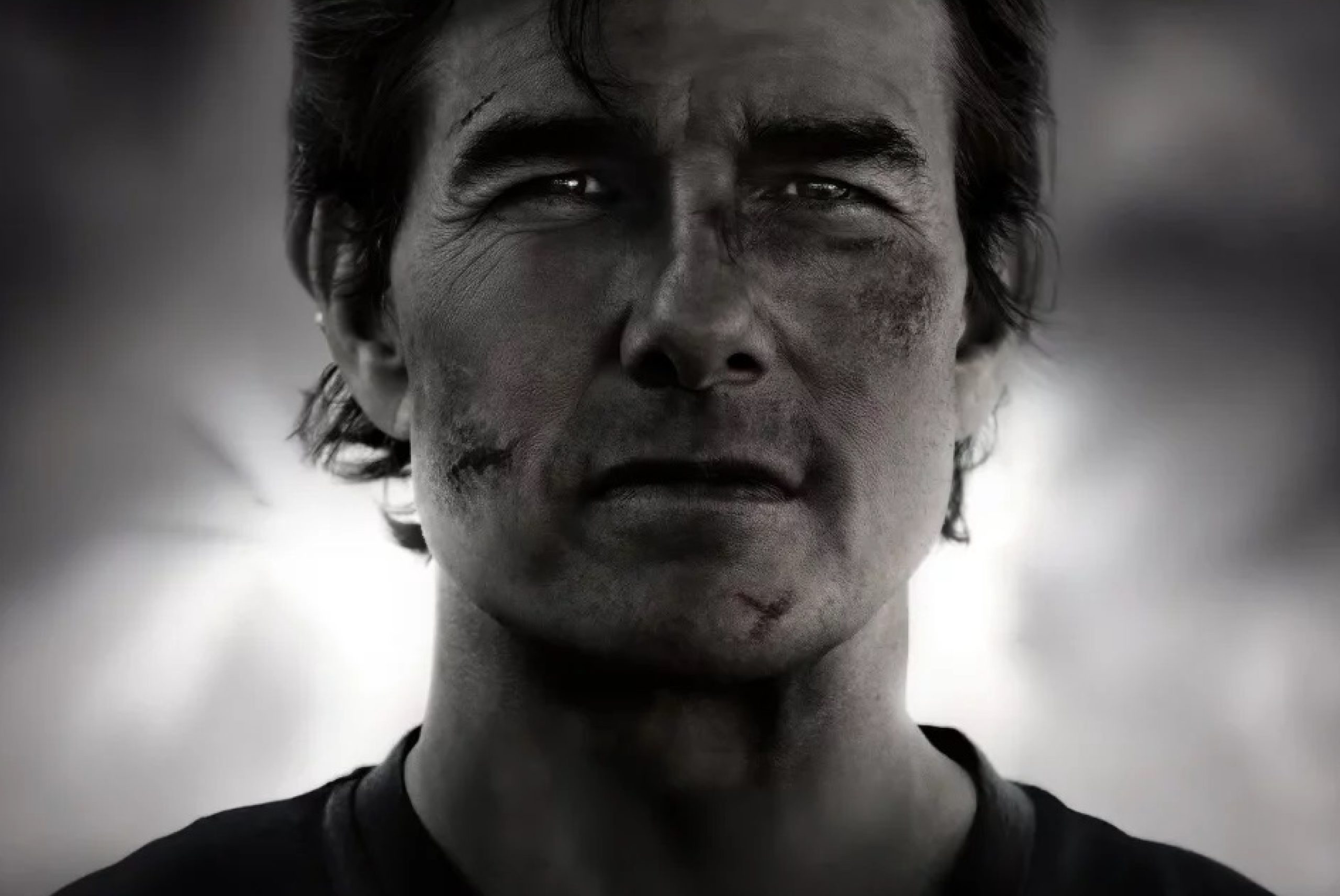
RATING
Director(s): Christopher McQuarrie
Country: United States
Author: Bruce Geller, Erik Jendresen, Christopher McQuarrier
Actor(s): Tom Cruise, Hayley Atwell, Ving Rhames
Written by Tom Augustine
Before the release of a new Mission: Impossible film, there’s an almost ritualistic period of ranked list posting among online cinephile communities. These films, that often feel incredibly distinct from one another, reveal a lot about the watcher themselves when placed in order of preference. Are you a classical, Mission: Impossible 1996 fan, with its Brian De Palma-led intrigue and psycho-sexual paranoia? Do you have a soft spot for the less-loved Mission: Impossible II, John Woo’s bizarre stylistic outlier, with its hyper-slick Aussie thrills? Perhaps you prefer the rock-solid construction of Rogue Nation, most beloved for its introduction of fan-favourite Ilsa Faust (Rebecca Ferguson)? Unlike, say, the Fast and Furious series, one of the few fellow long-term action juggernauts in the Hollywood ecosystem, the Mission: Impossible series has been adept at wearing new masks and taking on new identities while still holding on to the things that really matter about the series. Namely, big stunts, broad dramatics, a sprinkling of spycraft, and the all-encompassing charisma of its star, Tom Cruise. As Ethan Hunt, Cruise is playing a kind of avatar of himself, a saintly and unassailable do-gooder who puts everything on the line for the greater good. For Hunt, that greater good is the survival of humankind. For Cruise, it’s the survival of cinema itself. One of the last true, great movie stars, Cruise has put a lot of stock in the value of the cinema experience and the power of movies — his films with regular collaborators Christopher McQuarrie and Joseph Kosinski (including Top Gun: Maverick) are odes to the ability of real Hollywood movie making to do things that you can’t see anywhere else, and Cruise has been credited as having a major hand in the survival of cinemas in the COVID-era. Cruise is so watchable and likeable that it’s easy to buy into his modern-day characters as simply Cruise himself — rarely do they contain definitions beyond that.
Christopher McQuarrie has directed the last four Mission: Impossibles, including Fallout, which is my personal pick for the number one spot on the list. It’s a film of jaw-dropping, breathless spectacle, standing proudly alongside Mad Max: Fury Road as one of the best action films of the century. The announcement that the final go-round for Cruise and Mission: Impossible would be a bisected story was much in keeping with the serialisation that was en vogue at the time, sweeping up the likes of Harry Potter, Twilight, The Hunger Games, the Spider-verse movies, the Wicked films and the Fast and Furious series in the fever of potentially boosted box office revenue. It was a fad that was quickly and roundly rejected — the groans of annoyance from audiences met with a ‘To Be Continued’ at their end credits dispelled any notion that it built excitement for returning viewers. Occasional wins (Deathly Hallows Part One remains the finest non-Cuarón Potter; the final Twilight film was easily the best) were eclipsed by the ragged holes left by bigger failures — Across the Spiderverse drained much of the goodwill generated by Into the Spiderverse, while Fast X was so profoundly inept that we haven’t heard from the series since. Mission: Impossible – Dead Reckoning fared far better than these, an endearingly goofy addition to the franchise that filtered some old-school De Palma-isms back into McQuarrie’s clean-as-a-whistle directorial style: but that lingering sense of incompletion dimmed enthusiasm, and a lacklustre box-office exacerbated by the arrival of Barbie and Oppenheimer a week later was the result.
With so much table-setting already established by Dead Reckoning, one would expect The Final Reckoning, the latest entry, to hit the ground running and never let up — which is what makes the film’s cumbersome and lumbering first third so confounding. From the get-go, the rhythm feels off, employing extensive flashbacks, flashforwards and exposition dumps that feel deeply unnecessary, in service of a plot that becomes so complex that it begins to feel like a chore trying to untangle it. The bumbling early sequences bear the haphazard editing of a film that has been slashed down to a shorter runtime, though that’s only speculation. The basic shape of the story is this: Hunt is now on the run, a free agent hell-bent on destroying The Entity, a demonic AI that has slowly taken over the globe’s digital systems, intent on recreating the world in its own image. To defeat it, Hunt and his team must covertly retrieve a number of hard-to-reach doodads which, when put together, will forever entrap the Entity, cutting it off from the world. Hunt is pursued by the governments of both the USA and Russia, as well as the Entity’s one-time human henchman Gabriel (Esai Morales), who hopes to harness the power it holds for his own purposes.
The best, most consistent Hollywood action franchise comes to an end with this, the eighth instalment (and first Part Two of the series). A peculiar beast, Final Reckoning overcomes a lengthy period of throat-clearing and table-setting to deliver an appropriately massive finale for Tom Cruise’s Ethan Hunt, even if the sense of an ending doesn’t quite carry over by film’s end.
The who, how and why is a lot harder to parse — new characters are introduced willy-nilly, far too late to register (though Succession’s Tramell Tillman briefly impresses), while crosses and double-crosses take place in the blink of an eye, making it difficult to track who is allied with whom from scene to scene. Hunt’s team dangle perfunctorily for much of the action — bizarrely, as much time and energy are spent on US President Erika Sloane’s (Angela Bassett, a welcome returning presence) numerous uninteresting cabinet members (including Holt McCallany, Janet McTeer, Mark Gatiss and Nick Offerman) as on the genuinely fascinating members of Hunt’s team, like longterm second-in-command Benji (Simon Pegg) or new addition Paris (an underutilised Pom Klementieff). Returning pickpocket/love interest Grace (Hayley Atwell) fares somewhat better, though too often is stranded in the role of Hunt’s backup/carer, rather than be given something genuinely interesting to do. Best-served is Ving Rhames’ Luther, Hunt’s longest-serving team-member, given a warm sendoff that generates some of the most genuinely moving segments of The Final Reckoning.
It’s a symptom of a bigger problem with the film, which is that it often feels like it doesn’t quite know where to put its energy, and so settles for trying to spread it everywhere. The result is something that’s overstuffed even by Mission: Impossible standards, and also burdened with a new issue the series hasn’t faced before — self-consciousness. For too much of The Final Reckoning, there’s the sense of tentative unsurety, that an audience will commit to what they’re watching, but also that they’ll remember everything. McQuarrie crams the film with so much detail and exposition to wade through that the film’s purported finality is blunted, and an immense amount of valuable audience energy is sapped by story beats and shrug-worthy callbacks that barely register — one can understand the return of Harry Czerny’s long-term Hunt antagonist Kittridge, but was anyone clamouring for the return of Rolf Saxon’s William Donloe? For a series so committed to classically mounted, satisfyingly grounded blockbuster cinema, the film treads worryingly into the realm of fanservice, a steep downward slope to diminishing returns.
Thankfully, when it finally comes time for The Final Reckoning to lock in, it delivers some of the most remarkable action sequences the series has yet seen. The first: a viscerally intense, wordless action sequence on a submarine wreck at the very bottom of the Arctic Ocean, a sequence of claustrophobic and upsetting, steadily-escalating dread. Later, a spectacular biplane chase in sundrenched South Africa finds Cruise swinging, dangling and leaping around the airborne vehicle at speed. It’s terrifying to watch, brushing up against the magic the series most assuredly achieved in Ghost Protocol’s Burj Khalifa sequence, possibly the highpoint of these films. One felt the power of blockbuster cinema in these sequences, observing a packed IMAX screening clenched in their seats, leaning forward, an uncanny silence pervading as we were gripped by the daring, go-for-broke insanity we were witnessing on-screen. Unlike the portentous finales of, say, Harry Potter or the recent James Bond coda No Time to Die, The Final Reckoning (for all it’s doomsday fearsomeness) seemingly closes the book on Ethan Hunt with a muted, business-as-usual denouement. This could be a feature or a bug, depending how you look at it. In many ways, The Final Reckoning feels like just another Mission: Impossible film. There’s plenty to pore over for megafans concerned with the internecine links between the various films, but the film also works fine as a vehicle for some jaw-dropping, death-defying stunts and enjoyable spycraft. For those expecting a grand sendoff, the film’s shrug-worthy final sequence will surely come as a disappointment. If this is truly to be the end of Cruise’s death-defying days, though, there’s something to be said for the idea of a door remaining open, even if we never go through it again.
Mission: Impossible – The Final Reckoning is in cinemas now.

